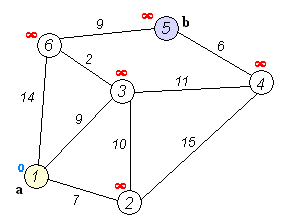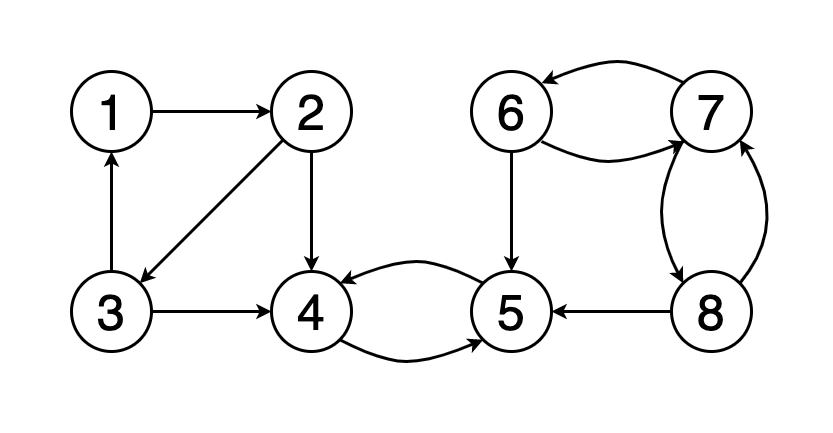Authors: Asif Rot & Maoz Lev
GraphInterface.py - Interface
DiGraph.py - GraphInterface implementation
GraphAlgoInterface.py - Interface
GraphAlgo.py - GraphAlgoInterface implementation
Readme.txt - This file
In this file, we will explain:
- Why we chose the data structures we used in this project.
- How we implemented the interfaces.
- Which algorithms we used.
this class implements the simple actions that build our graph:
add node - Adding a node to the graph
remove node - Removing a node from the graph
add edge - Adding edge between two nodes (*can't update weights*)
remove edge - Remove edge between two nodes
get_all_v - returns all the nodes in the graph
all_in_edges_of_node - returns all the nodes that are connected to the chosen node as destination. (return all src to the specific destination)
all_out_edges_of_node - returns all the nodes that are connected to the chosen node as src. (return all destinations fron the specific src)
Note: there was no need for node_data class.
The way we built the graph:
There are 2 dictionaries:
- nodes - {key, position}
- neighbors - {key, {key, weight}} - Every single node keeps a list of his "out nodes" (as destination)
- In this class all the DiGraph methods are being tested.
this class implements the algorithms in the graph, and some other more methods:
load_from_json - Load a graph from a json file. If there is no position for some node it will be placed by a random position.
save_to_json - Save the chosen graph to a json file. It will be saved on the project package.
shortest_path - Returns the shortest path from node id1 to node id2 using Dijkstra's Algorithm.
Return: The distance of the path, a list of the nodes ids that the path goes through.
connected_component - By using Kosaraju's algorithm, we can find the Strongly Connected Component(SCC) that the chosen node is a part of.
Return: The list of nodes in the SCC that the chosen node is a part of.
connected_components - By using Kosaraju's algorithm, we can find all the Strongly Connected Components(SCC) in the graph.
Return: A list of lists of nodes in their SCCs.
plot_graph - Plots the graph.
-
Dijkstra's algorithm: an algorithm for finding the shortest paths between nodes in a graph. At first, we initialize all the vertices distance to infinity. In the algorithm loop - as long as there are vertices in the queue:
-
Each neighbor of that node, will be updated to the minimal value of dist.
-
Adding the node which has the shortest distance to the queue.
-
For more info: (https://en.wikipedia.org/wiki/Dijkstra%27s_algorithm)
-
Kosaraju's strongly connected components algorithm is an algorithm for finding the strongly connected components (SCCs) of a directed graph.
- The key point of the algorithm is that during the first traversal of the graph edges, vertices are prepended to the list 'List' in post-order DFS relative to the graph being explored.
- Second, the algorithm do a post-order DFS on 'tmp_list' in order to pop the root vertices from 'List' and mark the SCCs to a list.
- Finally, we take this list and turn it into a list of lists where every list is a SCC.
For more info: (https://en.wikipedia.org/wiki/Kosaraju%27s_algorithm)
- In this class all the GraphAlgo methods are being tested.
In this part we ran the algorithms for comparisons:
-
shortest_path
-
connected_component
-
connected_components
More info in the Wiki page:


